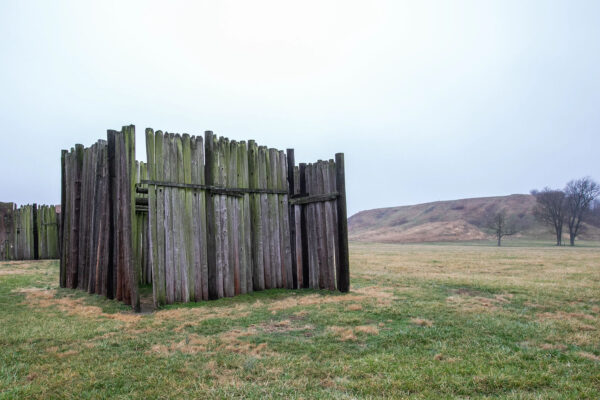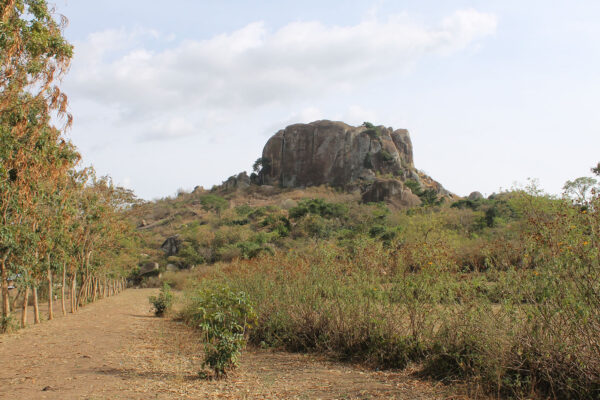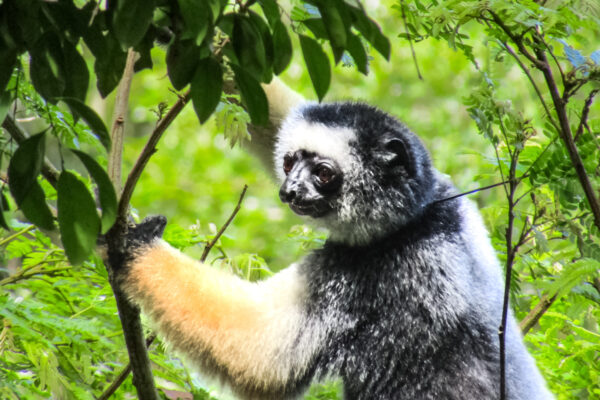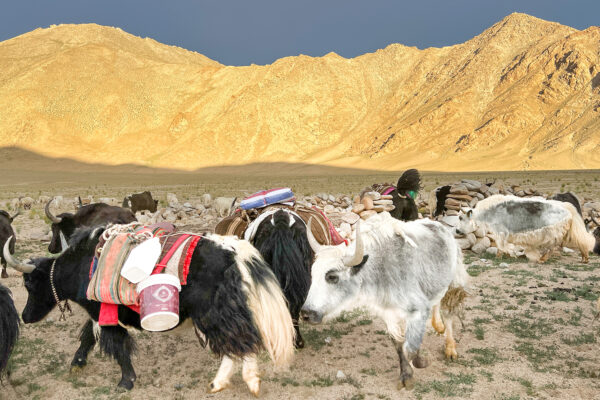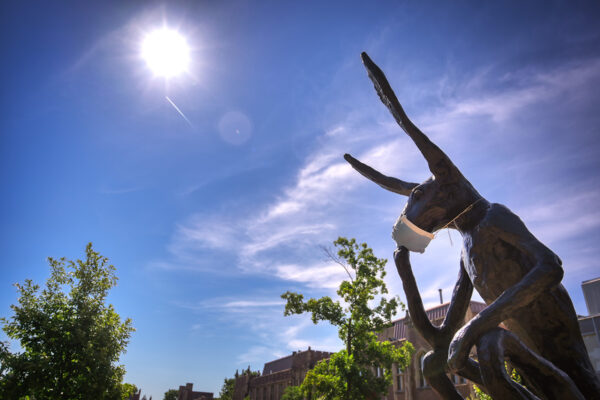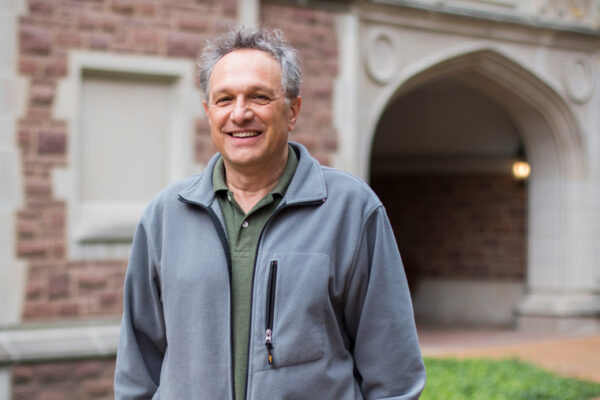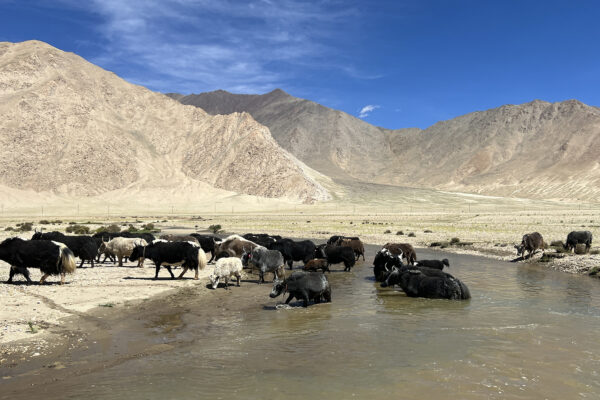High stress during pregnancy linked to elevated cortisol in toddlers’ hair, study finds
A study conducted by Theresa Gildner, an assistant professor of biological anthropology in Arts & Sciences, suggests that prenatal depression can having a lasting impact on the mother’s child, influencing how he or she responds to stress.
New study adds to mystery of Cahokia exodus
Natalie Mueller, an assistant professor of archaeology in Arts & Sciences, and alumna Caitlin Rankin dig into the Cahokia Mounds’ history to cast doubt on a popular theory about why the ancient city was abandoned.
Archaeologists report earliest evidence for plant farming in east Africa
Natalie Mueller in Arts & Sciences excavated and identified a trove of ancient plant remains in Kenya that represents the largest and most extensively dated archaeobotanical record from east Africa.
Lemur’s lament
What can be done when one threatened animal kills another? Researchers in Arts & Sciences confronted this difficult reality when they witnessed attacks on critically endangered lemurs by another vulnerable species, a carnivore called a fosa.
Movement of crops, animals played key role in domestication
Over the last 15 years, archaeologists have challenged outdated ideas about humans controlling nature. Writing in the Proceedings of the National Academy of Sciences, Xinyi Liu in Arts & Sciences argues for a new conceptual bridge connecting the science of biological domestication to early food globalization.
Pandemic course improved COVID-19 knowledge, study finds
A survey of nearly 1,000 people found Arts & Sciences’ course “The Pandemic: Science & Society” led to more accurate risk perception and stronger protective behaviors.
Why do we blame the victim?
In a new study published in Evolution and Human Behavior, Washington University researchers explore what causes people to decline lending a helping hand. In many cases, they find a way to blame the victim, resolving inner conflict by finding shortcomings in the person needing help, according to the research.
Prehistoric mobility among Tibetan farmers, herders shaped highland settlement patterns, cultural interaction, study finds
Research by Michael Frachetti in Arts & Sciences and researchers at Sichuan University in China explores how and why ancient communities built social relationships and cultural identities across the extreme terrain in Tibet.
Old research, new readers
Some Source stories from years past continue to attract new readers. Here, we check in with WashU researchers in linguistics, psychology, engineering and other disciplines to learn more about their work and how the research has progressed.
Earliest evidence for domestic yak found using both archaeology, ancient DNA
Archaeologists from Washington University in St. Louis discovered evidence for domestic yak in the Tibetan Plateau dating back 2,500 years.
Older Stories

